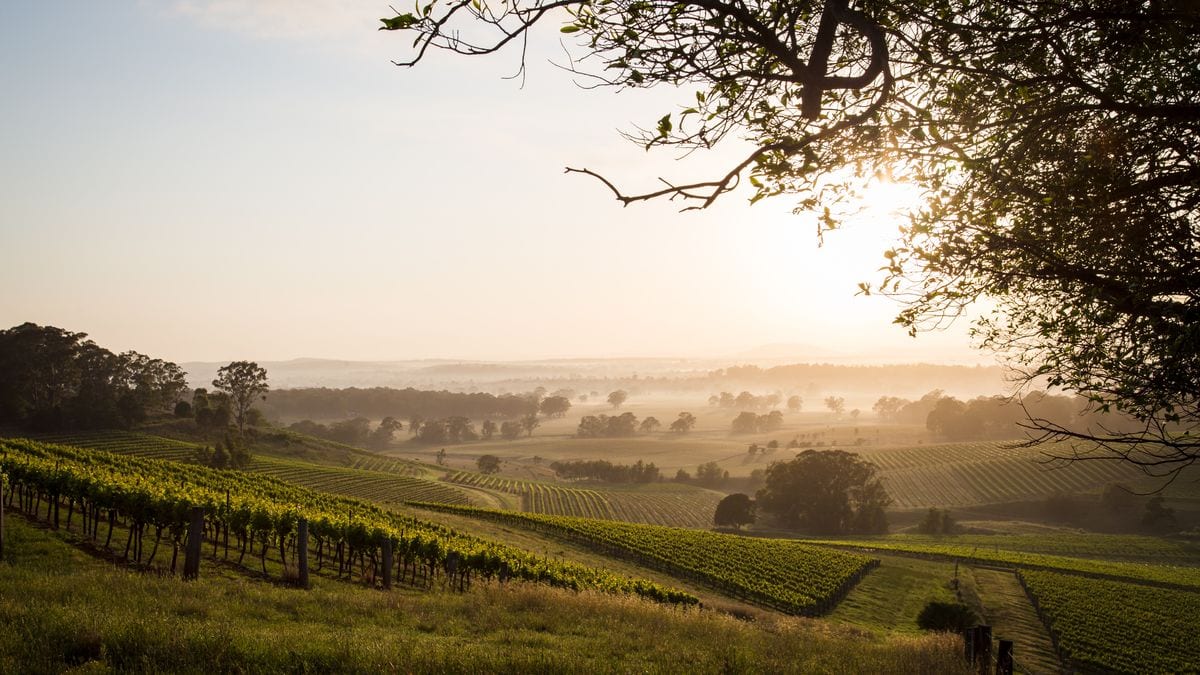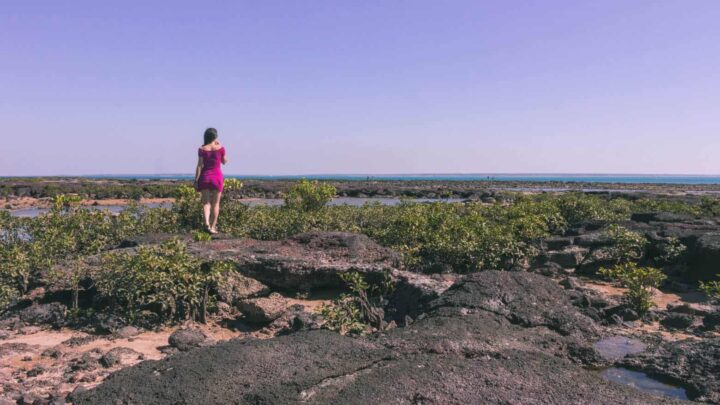How To Complete Farm Work in Australia & Extend Your Work Visa
This guide to doing farm work in Australia is authored by Rachel.
It is true that many people compare farm work in Australia to hell, but this does not have to be your reality. You can spend your time down under getting your three months or six months of farm work for the second-year and third-year visa, respectively, and enjoy yourself in the process.
It is not about finding easy farm work because honestly, no matter whether you are picking, pruning, packing or working with animals, there will be challenges. It is about making the most out of a unique experience, making friends, and getting to know the friendly locals.
This post will cover everything you need to know about farm work in Australia, from visa requirements to finding jobs and the reality of life on a farm, the good, the bad, and the ugly, in the hope that you will not make the same mistakes that so many others and I myself have made.
Should you do piece-rate work or an hourly job? Are there places to avoid? These are two of the essential questions that I will cover.
Table of Contents
A Comprehensive Guide to Farm Work in Australia
Why Do Farm Work in Australia?
My own experience is all too common. I arrived in Australia after traveling around South East Asia and thought “Wow, this country is expensive – but it’s fun, I want to stay another year and would like to stay away from home a bit longer”. Does this sound like you?
Well, that’s where the farm work comes in. After your first year on the Working Holiday Visa (WHV), to stay for a second year, you have to complete three months (88 days) of rural work and then six months again in your second year for the third year visa. It sounds more complicated than it is.
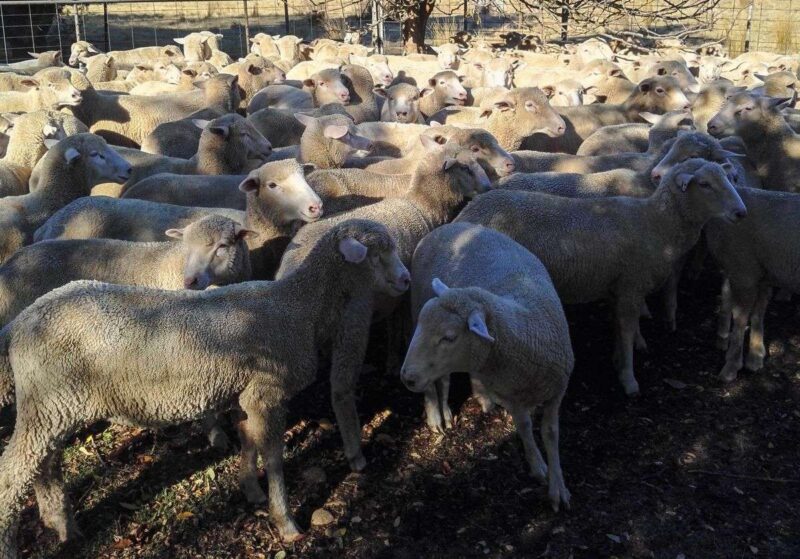
Whether or not you have to do farm work in Australia or other rural work depends on your visa. If you are on a 417 Visa, which is the visa you get from the UK, Italy, Canada, Germany, and France (to name a few), you will likely have to complete farm work in Australia (there are some exceptions).
However, if you are on a 462 Visa, which includes countries from the USA, Spain, Argentina, and Thailand (to name a few), you can do alternative regional work. The work needs to be in specific geographical locations, but in addition to the farm work, you can work in the tourism and hospitality industry to complete your three months.
It is mostly in northern Australia, and the general rule is over the Tropic of Capricorn. You should check where to find second-year visa jobs and farmwork carefully.
There have been stories where people have completed the three months only to find that their job was not in the correct postcode. You might think that this won’t be a big deal, but it could be the difference in getting that all-important second-year due to time pressure.
RELATED: The Ultimate Guide to the Australian Working Holiday Visa and Why To Go Now.
How To Get Farm Work Without Experience
Yes, indeed, you do not need farming experience to land a job in Australia. Although I’m certainly not saying that if you have a farming background, it is not an advantage – you will already have the skills, know the jargon, and will likely find it easier to get a job. Also, if you can ride a horse, you will be like gold dust!
I am a trained high school English teacher with absolutely no farming background. My first job in Australia was grape picking, and then I did roadhouse work before completing my farm work in Western Australia on an egg farm. Once the second year visa was in the bag – I could return to the classroom and spend my second year teaching in Australia in Rockhampton, Queensland.
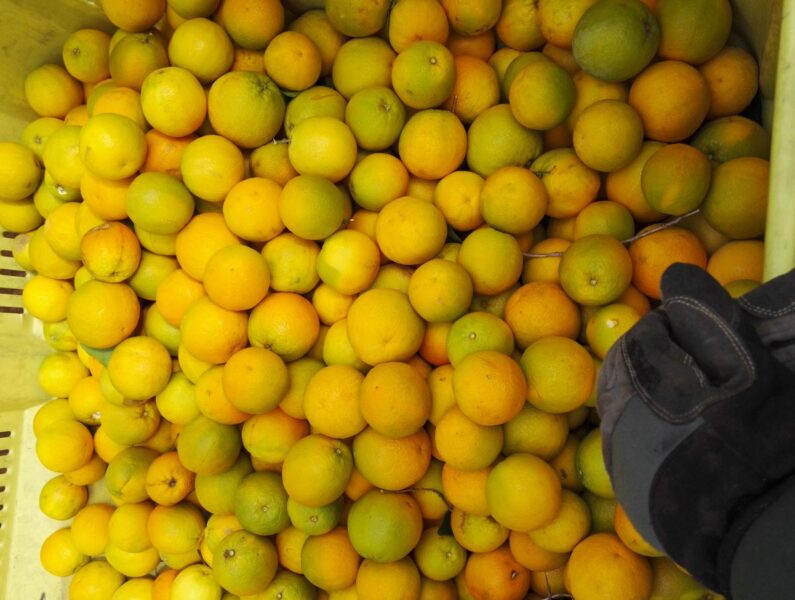
For me, farm work was a means to an end. Like it is for a lot of people. Although I learned lasting skills, learned about a new industry, made life-long friends, and formed a relationship that I am still in today. All through the ordeal of farm work.
I also saved enough money for traveling the whole loop of the country and New Zealand – with money left over. I put this down to working a lot and being rural, which means there are not many ways to spend your money
RELATED: How To Get a Job in Australia & Save a Sh*t Ton of Money.
👉 TOP TIP!
If you’re looking for farm work jobs around Australia, check out BackpackerJobBoard for the latest opportunities!
How Can You Find Farm Work in Australia?
Before you search for a job, make sure you have your WHV (417 and 462), you have your Tax File Number (TFN), and you are preferably in the country because you may have to start quite quickly.
Then there are numerous ways you can find farm work in Australia, and the vital thing to remember is to ALWAYS question it. If it seems sketchy, it probably is. Trust your gut.
1. Gumtree and Facebook
I found jobs on Gumtree and Facebook (join Australia Backpackers and Backpacker Jobs in Australia) and had no problems. But for extra caution, I asked to speak to current backpackers who currently worked there, and I did not go alone.
Be aware and be prepared. Ask lots of questions in the Backpacker Facebook Groups – people love to answer these. This is especially important if you are traveling solo and are heading to a remote place.
Unlock FREE Flights and Hotels!
Credit cards aren’t just for spending—they’re your ticket to epic travel rewards!
By using the right card for your everyday purchases, you could earn points for free flights, hotel stays, and more. No tricks, just smarter travel. Ready to see how?
2. Word of Mouth
It is always a great idea to take recommendations from people you meet. Word of mouth is a powerful tool, and if someone has had a great experience in the past. Ask them for the contact details of the farm or to recommend you. It works.
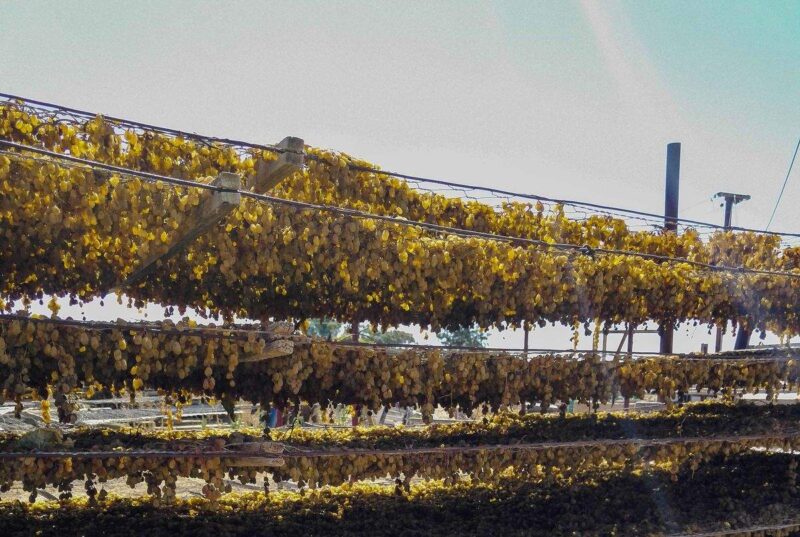
Also, can you get another opinion? Remember, one person’s opinion may be entirely different from someone else’s. Ask questions in the Facebook group, give the farm name, and ask people if they have been there and to share their experiences. It will give you peace of mind!
3. Calling Farmers or Approaching the Farms
Farmers are (usually) old school. Don’t expect to send an email and hear back. They will appreciate a phone call asking about work, and some people go around farms door to door. It might sound daunting, and it is certainly not for everyone, but if you’re in a group or are a confident soul – this may suit you.
4. Trusted Websites
I can personally recommend The Job Shop. I found my favorite farm work in Australia through them. The only downside is that they do not operate in every state; you will mostly find jobs in Western Australia and the Northern Territory. The application process is simple, you upload your details, apply for jobs, and they help you find work, and the best news – it is free to use.

What’s great about this site is they have physical shops in Perth (WA) and Kununurra (NT), which means you can ask questions and get advice. We applied on Friday and then got a call on Monday from the farmer and started work the following Friday. The process was easy and smooth.
Another trusted site is the BackpackerJobBoard, which covers jobs all over the country. If you don’t want to leave Australia after only a year, you’ll want to check out these jobs for your second-year visa.
5. Working Hostels
Another way to find work is through working hostels. They have a bad reputation for scamming, overcharging for accommodation, and lying about the available jobs. However, this is not a one-size-fits-all case and will rely on word of mouth and asking questions.
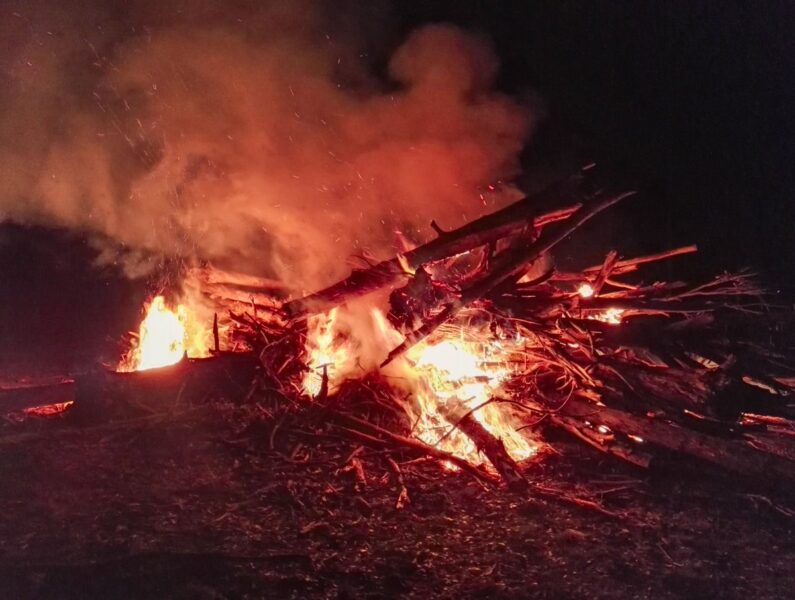
There are good ones out there, with people that do want to help you. For example, the Yeppoon Beach House Hostel has pleasant staff, but the available work is seasonal and limited.
Australian Training Adventures
Australian Training Adventures (or other similar programs) are an excellent option if you are feeling out of your comfort zone but still want to complete the farm work. In a nutshell, you pay a fee, and the training provider spends a week training you to learn the skills you need for farm work.
It can be how to use a chainsaw, quad bikes, and tractors, as well as general tips from Aussie farmers. Now, this does not come for free, but they help you find a job afterward, and you will leave feeling confident. If the difference between not having a second year down under and having one, the money will soon come back to you.
RELATED: How To Work Abroad in Australia (Without Experience).
What Type of Farm Work in Australia Can You Do?
There is a lot of farm work to choose from (sometimes you go where you can) but if you decide, then consider what you want to do or are willing to do. For example, some people do not want to work with animals due to ethical reasons or do not want to pick fruit because they are not physically fit.
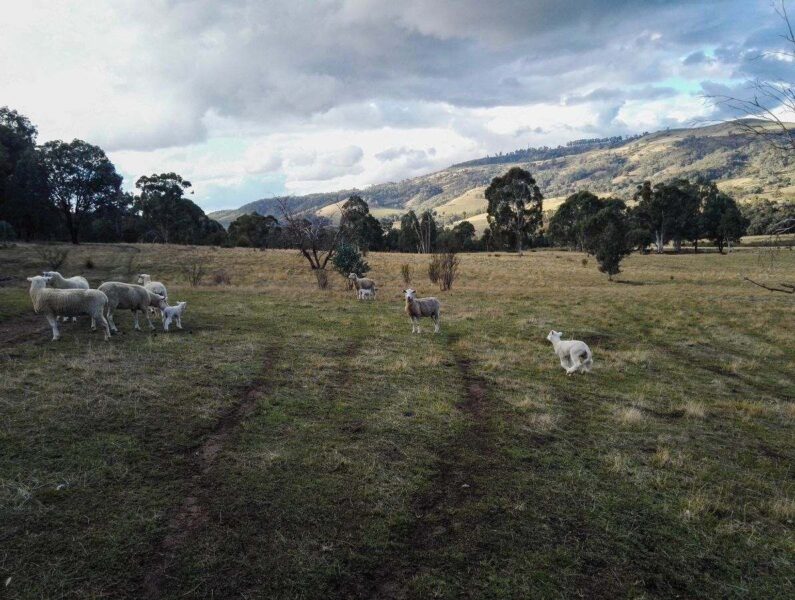
Consider the following list and think about what is suitable for you. You should also read the Australian Government guidelines about the specified work.
- Fruit picking. For example, oranges, grapes, bananas, tomatoes, strawberries.
- Pruning
- Packing can be meat, vegetables, walnuts,
- Working with animals. For example, horses, dairy farms, cattle, sheep, chickens.
- Tree Planting
- Fencing
- Construction
- Fishing
- Pearling
RELATED: What You Can Expect With WWOOFing Around the World.
What Should You Know Before Going to an Australian Farm?
A common question is: Should I do a piece rate or an hourly paid job? Piece rate can be low pay, so check and ask questions. As a general rule, hourly-paid jobs pay more than piece-rate jobs, but it is not always the case. Again, research is essential here, don’t write them off – but be aware.
The conditions can be challenging. Australia can get very hot, especially in the Northern Territory, and if you are working outside, this can be draining. The hours are long, and most of the time (due to the heat), you will begin very early in the morning (think before sunrise), so be prepared for long days and early starts.

Another thing to consider is accommodation. Usually, farm work includes housing, but this is not always the case and you should check before you go. From personal experience, there can be three rooms in a house with 15 workers. It can be challenging considering the hours you are working and limited showers and toilets available.
However, I also had the experience of staying in a house five minutes from the beach in Kalbarri, Western Australia. So there are incredible options out there.
I also took this as an excellent opportunity to travel and road tripped from Perth to Broome and then from Perth to Esperance because I was lucky enough to be in Western Australia for the farm work and went in my time off.
RELATED: Moving to Australia: The Price of Living Down Under (11 Cities).
9 Top Tips for Farm Work in Australia
- Plan Plan Plan. Do not leave your farm work until the last minute; you have to complete the required three months or you will not be able to stay. Do it as early as possible because you do not want to be in a position where you cannot work for a week due to factors out of your control (like the weather).
- Assume that your farm work will take longer than the three months. Remember, fruit and vegetables are seasonal and the work can be unpredictable. You may get told that you have three months of work, and then the work is completed within two months, this means you will have to start your job hunt again. Check the Harvest Guide for seasonal information.
- You cannot complete the work in a shorter period than three months (88 days). For example, you cannot work double hours. It is the days that count towards the visa, not the hours.
- Don’t give up if you do not find a job right away. Try all the methods and then try again. There is work – it is about finding the right job for you.
- Check that your farm is going to give you payslips. You will need to keep these safe and upload copies to get your second or third-year visa. Another important thing is to check that the postcode on the payslip is eligible. You can check this on the Australian Government website. If it is not valid, your farm work will not count – there are no exceptions to this.
- Get a car to have more flexibility. You will not be able to access some farms without a car, and others will not hire you if you do not have one. Alternatively, you can buddy up with someone who already has one. This way, you can share costs, and you won’t be entering the unknown alone. Double win.
- Remember each experience is different. You will hear that you should avoid Mildura and Bundaberg, and whilst you should proceed with caution, do not write off whole areas for this reason. Do your research and if it is not for you – then move onto the next application or phone call to a different place.
- Make sure you have appropriate clothing and footwear, especially if you are working outside. Depending on where you go, it may be extremely hot (or cold), so dress appropriately, cover up in the sun, and wear a hat to protect yourself.
- If you are unhappy or feel mistreated – leave. You do not deserve to travel to another country and feel that way. Know that you can leave anytime – do not stay to prove anything. It is better to complete the farm work over a more extended period than to not enjoy your time in Australia. Have a plan B and make sure you have enough money to move if you need to.
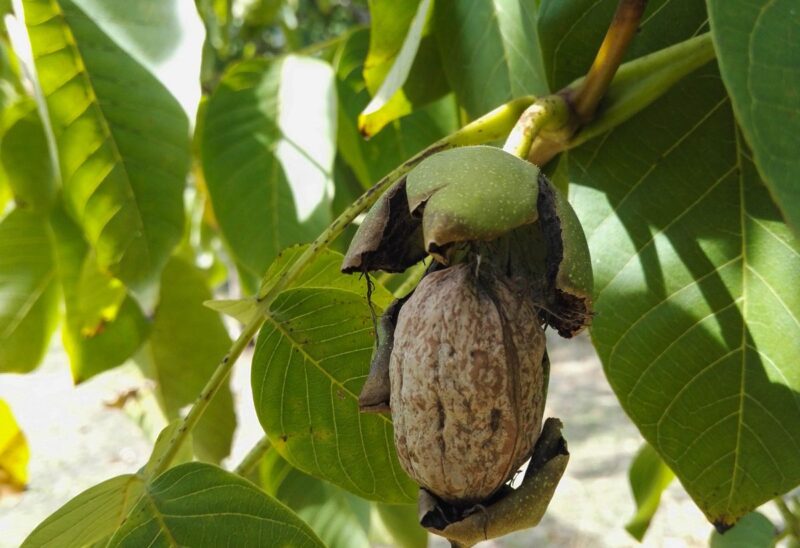
Overall Verdict About Farm Work in Australia
Now, don’t get me wrong, there is no way I am saying that farm work in Australia is easy. Nothing about it is easy. From getting the job to the long hours, early mornings, the heat, and the fact that it is mentally and physically draining. But, would I do it again? Absolutely.
The memories and the life-long friendships with people from all over the world are worth it. Personally, when I find something difficult now, I look back and think – if I completed the 88 days – then I can overcome this obstacle.
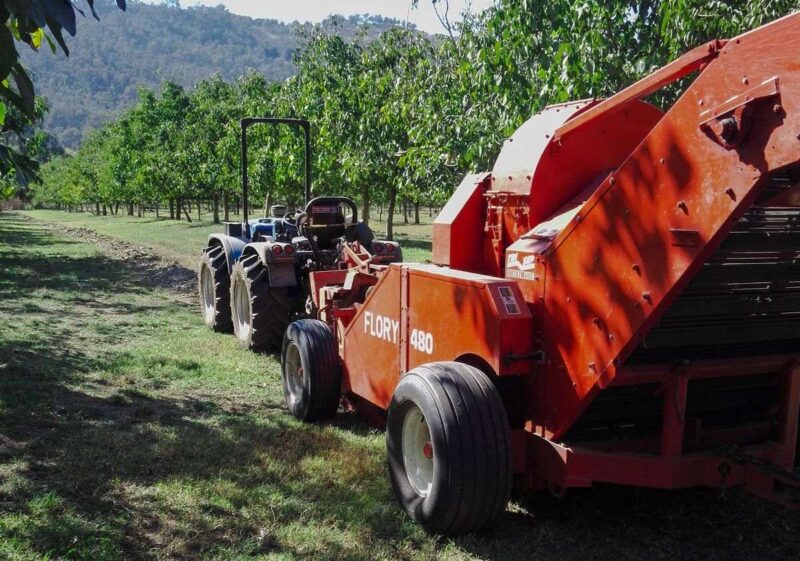
It gives you a new outlook on life, from respecting the hard work that goes into picking and packing fruit and vegetables, to understanding how the food arrives in the supermarket.
You will also see places in Australia and meet (and get to know) locals that you would not get to experience otherwise. So do your research, follow the tips, be aware, and have an unforgettable experience that you will talk about for years to come.
>>> BIO
This post was contributed by Rachel and Nico. They met on a grape picking farm on their WHV, and now run the affordable travel blog Average Lives.
More About Working in Australia
>>> EVEN MORE ABOUT TRAVELING AND WORKING IN AUSTRALIA <<<
Moving to Australia: The Price of Living Down Under (11 Cities)
How I Saved $17k USD in 10 Months Living in Australia
An American Expat: Working and Living in Darwin, Australia
10 Tips for Moving to Melbourne After Your Travels
A Legendary 7-Day Outback Road Trip Itinerary (Australia)
7 Days in Sydney Itinerary- for Those Who Want a Bit of Everything!
How to Do a Campervan Relocation in Australia for $1
Cheap Things to Do in Melbourne When You’re Broke AF

